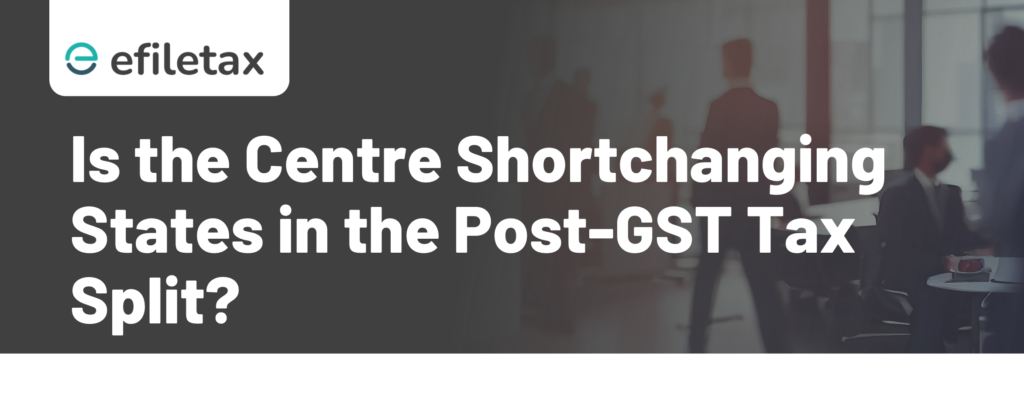
Summary
Post-GST, states have lost key revenue powers. This blog explains why India must now increase states’ share in central taxes to preserve federal balance and ensure equitable growth.
Why States Deserve a Bigger Share of Central Taxes Post-GST
The introduction of the Goods and Services Tax (GST) in 2017 reshaped India’s fiscal landscape. While GST unified the tax system and improved ease of doing business, it also diluted the fiscal autonomy of states.
States deserve a bigger share of central taxes post-GST — and here’s a breakdown of why this demand is both timely and justified.
How GST Changed Fiscal Federalism
Before GST:
- States independently levied taxes like VAT, entry tax, and purchase tax.
- These formed a significant part of their own-source revenue.
After GST:
- Major indirect taxes were subsumed under GST.
- States surrendered key tax powers to the GST Council.
- Compensation for revenue loss was guaranteed only for 5 years (till June 2022).
Result: States now depend more on central transfers and GST compensation, reducing their fiscal space and flexibility.
Data Says It All: States’ Share Is Shrinking
According to 15th Finance Commission data:
- States’ share in divisible pool (2021–26): 41%
- But in actual terms, the share has reduced due to:
- Cesses and surcharges (which are not shared with states)
- Central schemes requiring state co-funding
- Expiry of GST compensation
As per CAG data (FY 2022–23):
Over 19% of gross central tax revenue came from cesses and surcharges, which bypass state distribution.
Key Legal References and Expert Opinions
- Article 270 of the Constitution governs distribution of taxes between Centre and states.
- The Supreme Court in Mohit Minerals case (2022) reasserted the cooperative federalism doctrine under GST.
- RBI’s 2021 State Finances Report noted: “The revenue uncertainty post-GST has impacted state-level capital spending and fiscal planning.”
Expert View:
“States must be made fiscally resilient. Otherwise, the GST model risks becoming a one-sided power shift.” — Former Finance Secretary Subhash Garg
Why Rebalancing Tax Share Matters
Here’s what states need a higher tax share for:
- Public health and education, which are primarily state subjects.
- Rural infrastructure, often ignored in central schemes.
- Disaster relief, where states bear first-line responsibilities.
- Social welfare tailored to local needs (caste, region, income-based).
Suggestions for a Balanced Approach
✅ Reform cess/surcharge structure to include in divisible pool
✅ Revise Finance Commission formula to reflect post-GST realities
✅ Ensure GST Council accountability for delays in fund settlements
✅ Create a permanent GST compensation framework for future shocks
Conclusion: Fiscal Equity Is the Foundation of Unity
The promise of “one nation, one tax” must not come at the cost of one-size-fits-all governance. States need financial flexibility to fulfil their constitutional roles effectively.
It’s time for the Union government to rebalance the central tax distribution — not just to keep states happy, but to keep India growing.
Need help with GST returns, ITR filing, or state-level compliance?
Efiletax helps professionals, businesses, and consultants stay updated and compliant across India.
FAQs
Q1. Why are states demanding a higher share of central taxes?
A: Post-GST, states lost many independent tax powers. To compensate and ensure fiscal autonomy, a larger share is justified.
Q2. What happens if the Centre doesn’t increase the share?
A: States may face budget constraints, reduced spending on welfare, and weakened infrastructure investments.
Q3. Can the GST Council increase states’ share?
A: No. The share is decided by the Finance Commission and Parliament under Article 280 and Article 270.